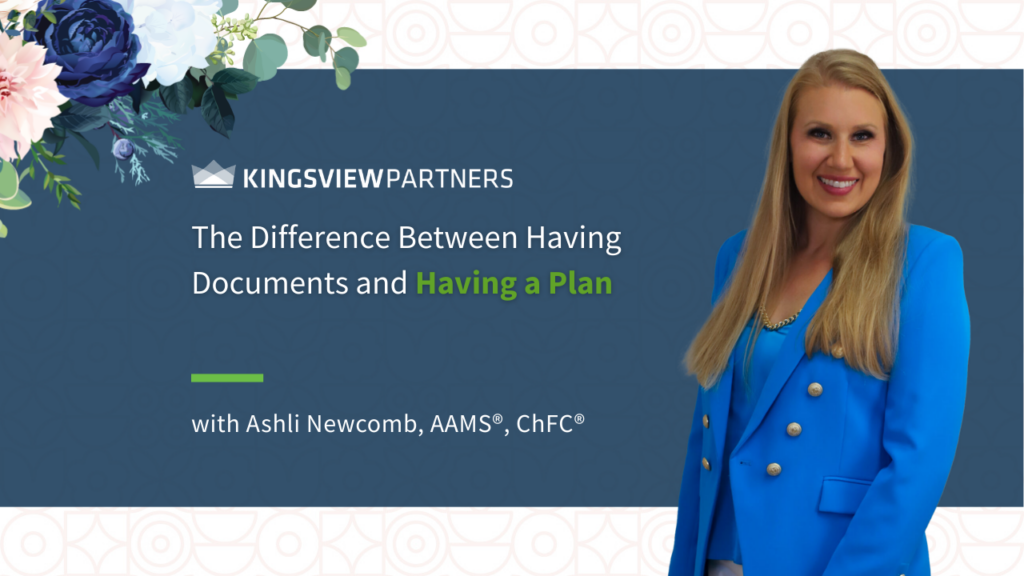Pause, Adapt, and Stay on Track: Your Financial Instincts Might Be Right
Executive Summary
Financial advice often encourages consistency: stay the course, avoid emotional decisions, and trust your plan. But your gut feelings aren’t always a panic response! They can be valid signals that circumstances are shifting, and you might need to examine your financial strategy.

Want to watch an in-depth exploration of this topic? Check out this video on my YouTube channel, @savvysteward: Pause, Adapt, and Stay on Track: Your Financial Instincts Might Be Right
Pause, Adapt, and Stay on Track: Your Financial Instincts Might Be Right
Financial advice often encourages consistency: stay the course, avoid emotional decisions, and trust your plan. But when new variables enter the picture, sticking blindly to the original plan can cost you more than making a timely adjustment.
That’s why I always tell clients: yes, we build a plan—but we also build in flexibility. Because life rarely goes exactly as planned, and sometimes, your instincts are the early signal that it’s time to adapt.
When should you reconsider your financial plan?
A good financial plan accounts for more than just investments—it reflects your income, expenses, priorities, and the broader economic environment. If any of those pieces shift, your plan might need to shift, too.
Maybe your income drops unexpectedly, or your business faces tighter margins. Maybe your costs are rising faster than expected. Waiting too long to address those changes can reduce your options. A plan that once made perfect sense may now be working against you because the landscape has changed.
The decision to pause and reassess isn’t emotional—it’s strategic.
How can instincts help—not hurt—your financial decisions?
Instincts get a bad rap in financial circles. We’re often told to suppress them in favor of logic and discipline. But not every instinct is irrational. In fact, some are incredibly useful.
When something feels off financially—when your spending patterns don’t feel sustainable, or when your investments aren’t performing the way you expected—those instincts are often a sign that something has shifted. You might not be able to articulate it right away, but your brain is often ahead of your conscious thought in recognizing patterns.
That doesn’t mean you overhaul everything on a feeling. But it’s a prompt to take a closer look.
What if economic conditions impact your financial strategy?
External factors can disrupt even the most carefully crafted plans. If market volatility spikes, interest rates rise, inflation surges, or the business climate shifts, your financial approach may need to change.
This doesn’t mean abandoning your goals—it means reevaluating how to reach them under new circumstances. Maybe that means reallocating investments, holding more cash for liquidity, or slowing down discretionary spending. The key is staying proactive instead of reactive.
Don’t assume the plan you created two years ago still fits today’s realities. Plans should be living documents, not static templates.
How do you know if your financial concerns are emotional or justified?
One of the hardest things to do in a financial shift is to separate gut-level panic from valid concern. But it’s a necessary distinction.
If you’ve been diligent with your plan and have made steady progress, a wave of anxiety might be emotional. But if you’re noticing real changes—like increased volatility, tightening margins, or growing expenses—it could be a legitimate prompt to act.
This is where working with a trusted advisor matters. They bring objectivity, data, and perspective—helping you filter fear from facts. It’s not about suppressing your concerns. It’s about weighing them in context.
What are smart ways to adjust a financial plan without derailing it?
Not every adjustment needs to be dramatic. In fact, the best changes are often small, deliberate, and targeted.
Instead of pulling out of the market altogether, you might rebalance your portfolio or reduce exposure to a single sector. Instead of cutting all spending, you might reallocate dollars from low-value areas to high-priority goals.
The question to ask yourself is: “What is this change solving?” If you have a clear answer, it’s probably a smart adjustment.
Adapting doesn’t mean abandoning. It means staying aligned with your purpose—especially when life throws something unexpected your way.
Contact Information
Keith Demetriades, CFP®, CKA®, helps individuals, families, and organizations integrate faith-based principles into their financial planning. Oikonomia is a foundational concept in his practice, reflecting his commitment to stewardship, purpose, and making your life count.
For more information, contact Keith at (806) 223-1105 or visit https://www.kingsview.com/advisor/keith-demetriades/.
Disclaimer: The information provided in this blog is for educational purposes only and should not be considered financial advice. Please consult a qualified financial advisor to discuss your specific situation and needs. Past performance does not indicate future results, and all investments carry risks, including potential loss of principal. Any financial product or strategy references are purely illustrative and should not be construed as endorsements or recommendations.



